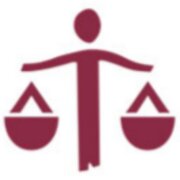Best Animal Law Lawyers in Cape Town
Share your needs with us, get contacted by law firms.
Free. Takes 2 min.
List of the best lawyers in Cape Town, South Africa
About Animal Law in Cape Town, South Africa
Animal Law in Cape Town, South Africa, encompasses a range of legal issues concerning the treatment and welfare of animals. The primary objective of animal law is to protect animals from cruelty and exploitation while ensuring that human-animal interactions are regulated in a manner that promotes well-being and ethical treatment. Cape Town, with its rich biodiversity and cultural heritage, has unique challenges and considerations in the field of animal law, involving domestic animals, wildlife, and agricultural practices. Legal professionals in this field work to support legislation, advocacy, and enforcement aimed at safeguarding animal rights and welfare.
Why You May Need a Lawyer
There are several situations in which individuals or organizations may require legal assistance in the field of animal law. Common scenarios include:
- Cases of animal cruelty or neglect where intervention is required.
- Disputes over pet ownership or custody in cases of relationship breakdown.
- Legal issues related to animal breeding, sales, or adoptions.
- Protection against harmful agriculture or farming practices.
- Navigating permit and licensing requirements for owning exotic pets or conducting wildlife activities.
- Instances of animal attacks, bites, or injuries involving humans.
- Dealing with nuisance complaints related to animals, such as noise or property damage.
- Ensuring compliance with environmental regulations affecting wildlife and habitat.
Local Laws Overview
The legal framework concerning animal law in Cape Town is influenced by national legislation as well as local ordinances. Key aspects include:
- The Animal Protection Act 71 of 1962, which prohibits cruelty to animals and outlines responsibilities for pet owners.
- The Performing Animals Protection Act of 1935, regulating the exhibition and training of performing animals.
- Cape Town's municipal by-laws on animal control, addressing issues such as pet registration, vaccination, and public safety regarding animals.
- Conservation laws protecting wildlife, including the National Environmental Management: Biodiversity Act.
- Provisions under the SPCA Act that empower the Society for the Prevention of Cruelty to Animals to intervene in cases of animal abuse.
Frequently Asked Questions
1. What is considered animal cruelty under South African law?
Animal cruelty includes any act or omission that inflicts unnecessary pain or suffering on an animal, as defined under the Animal Protection Act.
2. How can I report animal abuse or neglect in Cape Town?
Reports can be made to the local SPCA, the police, or the City of Cape Town’s Law Enforcement department.
3. Are there specific laws regarding breeding and selling pets?
Yes, breeders need to comply with national and local regulations, including permits for certain species and adherence to animal welfare standards.
4. Can I keep exotic pets in Cape Town?
Owning exotic pets is regulated by permits and restrictions to ensure species conservation and public safety, as outlined by both national and local laws.
5. What should I do if bitten by a dog in Cape Town?
Seek immediate medical attention and report the incident to the local authorities or the SPCA for further investigation.
6. What are my rights if wildlife is being poached on my property?
Contact local enforcement authorities as well as conservation bodies for immediate action against illegal hunting or poaching activities.
7. What legal recourse do I have against noisy pets in my neighborhood?
Complaints can be lodged with the municipal police services under the city's noise by-laws.
8. How are disputes over pet custody resolved legally?
Pet custody issues can be addressed through mediation, and where necessary, through court interventions focusing on the best interest of the pet.
9. Does Cape Town have leash laws for dogs?
Yes, dogs are required to be leashed in public areas except designated off-leash zones in compliance with the City of Cape Town’s by-laws.
10. How does animal law address factory farming practices?
Animal law addresses farming practices through animal welfare standards and environmental regulations aimed at reducing harm to farm animals.
Additional Resources
There are several resources and organizations available to those seeking more information or assistance with animal law matters:
- Society for the Prevention of Cruelty to Animals (SPCA)
- CapeNature, managing biodiversity and conservation in the Western Cape
- Department of Environmental Affairs for guidelines on wildlife and environmental protection
- Legal Aid South Africa for legal support and guidance
- Local veterinarians and animal welfare organizations for community support and advice
Next Steps
If you need legal assistance in the field of animal law, it is recommended to first gather all relevant information and documentation pertaining to your case. Contact a lawyer specialized in animal law or a related legal practitioner for a consultation. You may also reach out to local animal welfare organizations that can provide support and possibly refer you to appropriate legal resources. Always ensure that the legal professional you choose is experienced and knowledgeable in the specific area of concern within animal law.
Lawzana helps you find the best lawyers and law firms in Cape Town through a curated and pre-screened list of qualified legal professionals. Our platform offers rankings and detailed profiles of attorneys and law firms, allowing you to compare based on practice areas, including Animal Law, experience, and client feedback.
Each profile includes a description of the firm's areas of practice, client reviews, team members and partners, year of establishment, spoken languages, office locations, contact information, social media presence, and any published articles or resources. Most firms on our platform speak English and are experienced in both local and international legal matters.
Get a quote from top-rated law firms in Cape Town, South Africa — quickly, securely, and without unnecessary hassle.
Disclaimer:
The information provided on this page is for general informational purposes only and does not constitute legal advice. While we strive to ensure the accuracy and relevance of the content, legal information may change over time, and interpretations of the law can vary. You should always consult with a qualified legal professional for advice specific to your situation.
We disclaim all liability for actions taken or not taken based on the content of this page. If you believe any information is incorrect or outdated, please contact us, and we will review and update it where appropriate.













